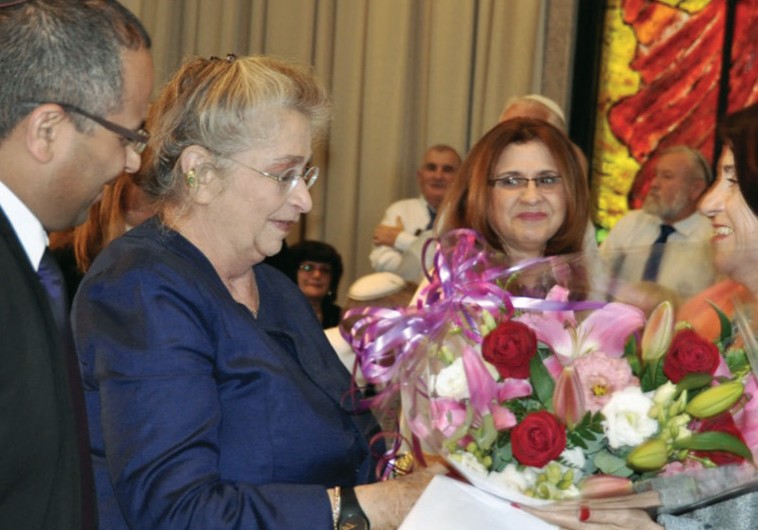Grapevine: A matter of semantics
“Don’t call me ‘First Lady.’ I am the wife of the president of the state, but I am not the ‘First Lady,’” insists President's wife.
 Nechama Rivlin (center) accepts a bouquet from author Dina Kit(photo credit: PRESIDENTIAL SPOKESPERSON OFFICE)
Nechama Rivlin (center) accepts a bouquet from author Dina Kit(photo credit: PRESIDENTIAL SPOKESPERSON OFFICE)